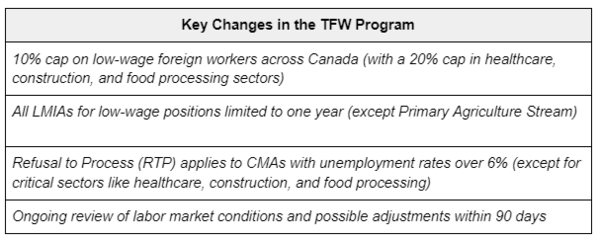The IMF has approved a USD 7 billion new bailout package for Pakistan, authorising the immediate release of the first loan tranche of less than USD 1.1 billion to reinforce the cash-strapped country’s efforts to address the ongoing economic crisis.
The International Monetary Fund (IMF) board met on Wednesday in Washington to give a nod to the staff-level agreement with Pakistan after Islamabad promised to overhaul its agriculture income tax, transfer some fiscal responsibilities to provinces, and agree to limit subsidies. The Prime Minister’s Office confirmed the Executive Board of the IMF approved the 37-month Extended Fund Facility (EFF) totalling USD 7 billion.
It is the 25th IMF programme that Pakistan has obtained since 1958 and the sixth EFF. Pakistan will pay around a 5 per cent interest rate on the IMF loan, The Express Tribune quoted the Ministry of Finance as saying in a statement given to the Senate Standing Committee on Economic Affairs.
Prime Minister Shehbaz Sharif on Wednesday reiterated this would be Pakistan’s last IMF programme; a statement he made after the approval of the 24th programme in 2023 as well. Shehbaz, giving credit for the new bailout package to Deputy Prime Minister Ishaq Dar, Chief of the Army Staff General Asim Munir and the finance team, noted the federal government cannot complete the 25th programme without the cooperation of all four provinces.
The Sindh government on July 30 ratified a memorandum of understanding for signing the National Fiscal Pact and the Balochistan government signed it on July 26 following the staff-level agreement between Pakistan and the IMF on July 12. The IMF board approved the programme without addressing one of the root causes of economic crunches — need to restructure the external and domestic debt that consumed 81 per cent of Pakistan’s tax revenues in the last fiscal year, the report said.
The new bailout package targets achieving macroeconomic stability by consolidating public finances, rebuilding the foreign exchange reserves, reducing fiscal risks from state-owned enterprises, and improving the business environment to encourage growth led by the private sector. To qualify for the programme, the government raised Rs 1.8 trillion in additional taxes from Rs 1.4 trillion earlier, increased electricity prices up to 51 per cent, and promised to bring transparency in the affairs of the Sovereign Wealth Fund, it said.
The government also took the most expensive loan in Pakistan’s history — USD 600 million — to win a board meeting date from the IMF. The power sector fiscal viability, privatisation of loss-making entities and enhancing tax revenues are part of the core conditions of the IMF programme.
Unlike in the past, when the provincial budgets were out of the purview of the IMF, the new programme is also expanded to the provincial budgets and their revenues. Nearly one dozen IMF conditions directly impact the provinces under the new programme, the report said. The federal and provincial governments will sign a new National Fiscal Pact by next Tuesday to transfer the responsibilities of health, education, social safety net and road infrastructure projects to provinces, according to the conditions agreed with the IMF.
All four provincial governments will align their agriculture income tax rates to the federal personal and corporate income tax rates by amending their laws by October 30. As a result, the agricultural income tax rate would increase from 12-15 per cent to 45 per cent in January next year.
All the provincial governments will refrain from giving further subsidies on electricity and gas and not establish any new Special Economic Zones or Export Processing Zones as per the IMF agreement. The federal government will not be entitled to have any new economic zones and end the tax incentives of the existing zones by 2035.
According to another condition, Pakistan needs to show a primary budget surplus of 4.2 per cent of the Gross Domestic Product during the three-year programme period. The primary budget surplus is calculated after excluding interest payments. A 4.2 per cent GDP deficit would significantly squeeze non-interest expenses and put an additional tax burden of 3 per cent on the existing taxpayers.
Under the IMF programme, a primary surplus equalling 1 per cent of GDP will have to be shown in this fiscal year and about 3.2 per cent over the next two years to put the debt-to-GDP ratio on a sustainable declining path. In case of tax shortfall, the government has committed to bringing a mini-budget to increase tax rates on imports, contractors, professional service providers as well as fertilizers. The FBR is facing the risk of over Rs 200 billion tax shortfall for the first quarter.
For this fiscal year, Pakistan will be bound to keep the spending on defence and subsidies at the previous fiscal year level in terms of the size of the economy. However, the design of the programme has not completely addressed the issue of debt unsustainability and is built around the strategy of rolling over the maturing external debt during the period.
Pakistan has committed to refrain from repaying the USD 12.7 billion debt to Saudi Arabia, China, the UAE, and Kuwait during the programme period. The IMF forced Pakistan to first bridge a USD 2 billion additional financing gap for qualifying the board approval. Pakistan had to take the most expensive commercial loan in its history at an 11 per cent interest rate from the Standard Chartered Bank to meet the financing gap.
The Asian Development Bank warned on Wednesday that the rising political and institutional tensions may make it difficult to implement the reforms that Pakistan has committed to deliver to the IMF. The ADB said these reforms were crucial to ensure that external lenders keep lending to Pakistan.
(This story has not been edited by News18 staff and is published from a syndicated news agency feed – PTI)
















